Cancer Data Trends 2024: Lung Cancer
Reviewed by Apar Kishor Ganti, MD, MS
Professor, Department of Medicine
University of Nebraska Medical Center
Staff Physician, Department of Internal Medicine
VA Nebraska-Western Iowa Health Care System
Omaha, NE
Apar Kishor Ganti, MD, MS, has disclosed the following relevant financial relationships:
Serve(d) as a director, officer, partner, employee, advisor, consultant, or trustee for: AstraZeneca; Flagship Biosciences; G1 Therapeutics; Jazz Pharmaceuticals; Cardinal Health; Mirati Therapeutics; Regeneron Pharmaceuticals; Sanofi; Genzyme; Eisai
1
-
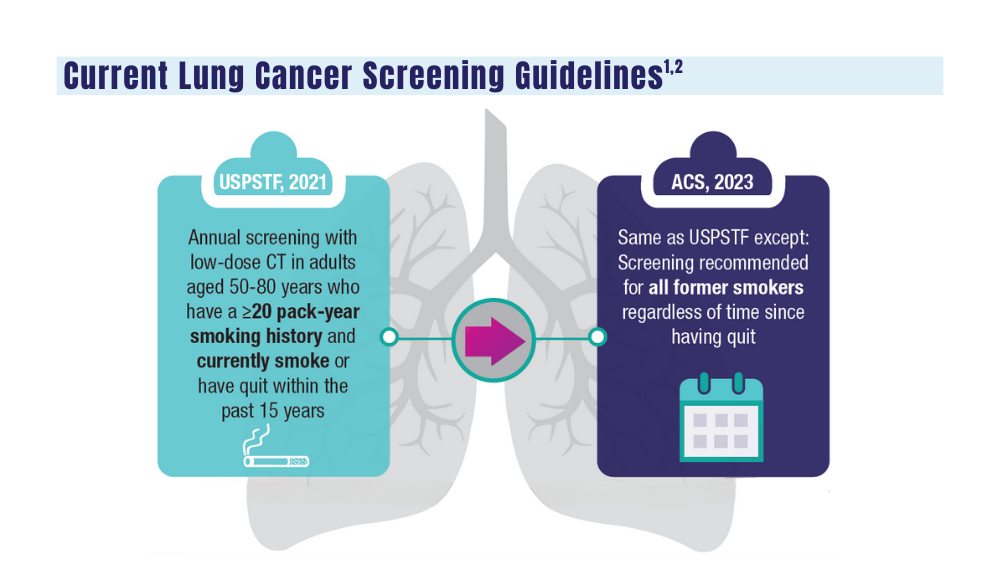
The VA adheres to USPSTF screening guidelines for lung cancer. At least 1 million veterans are eligible for screening, yet many fewer veterans are being screened.
ACS, American Cancer Society; CT, computed tomography; USPSTF, US Preventive Services Task Force
-
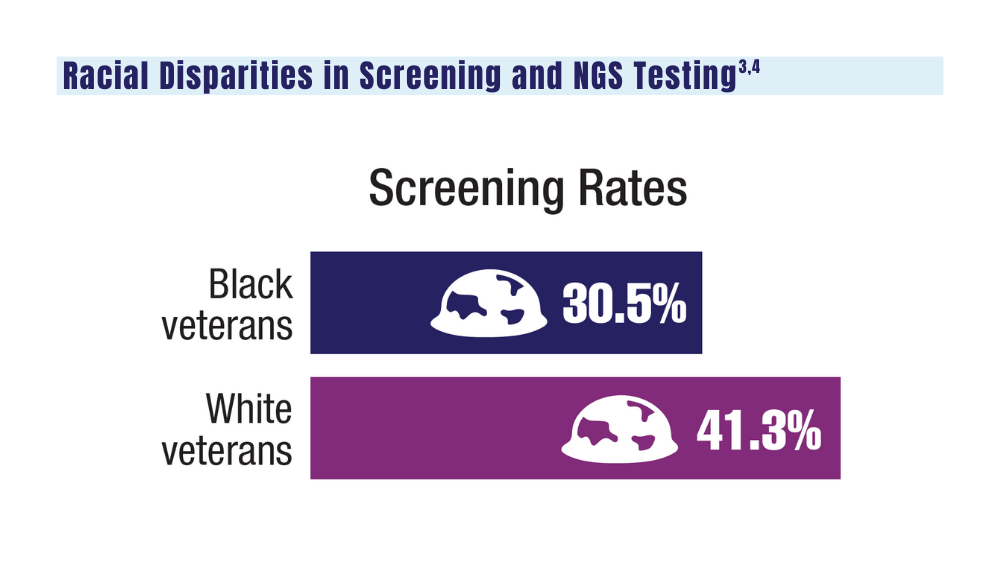
Black veterans are less likely than White veterans to complete screening for lung cancer.
-
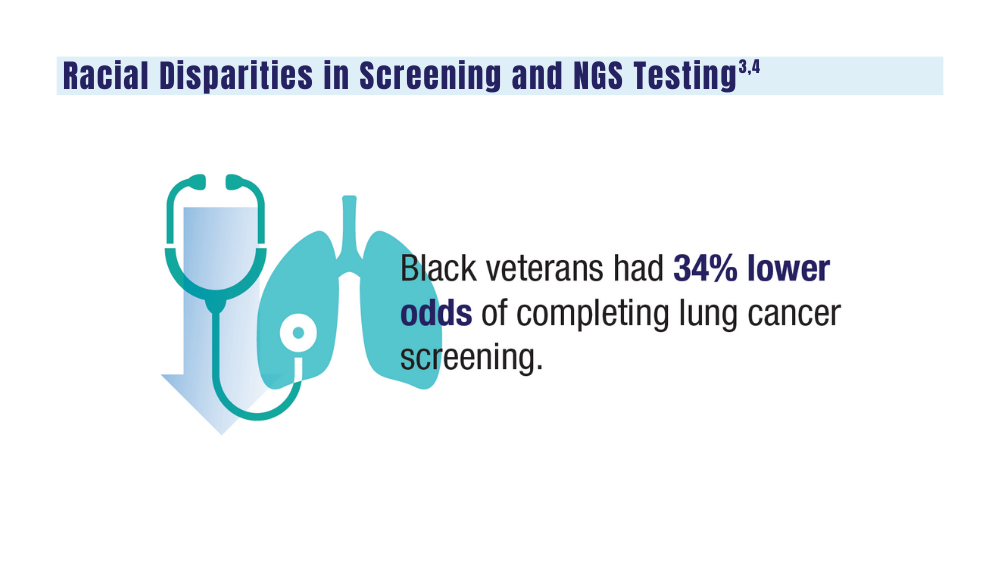
-
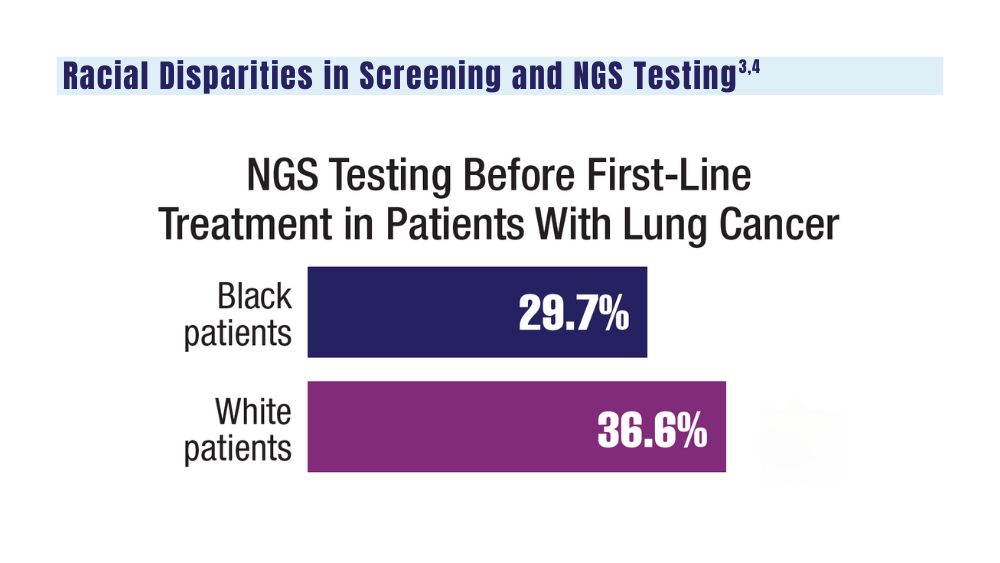
Black patients with non-small cell lung cancer (NSCLC) in the general population also have lower rates of next-generation sequencing (NGS) testing, which is critical in providing patients with new targeted therapies. These discrepancies must be addressed to improve screening and treatment in lung cancer for minority groups.
-
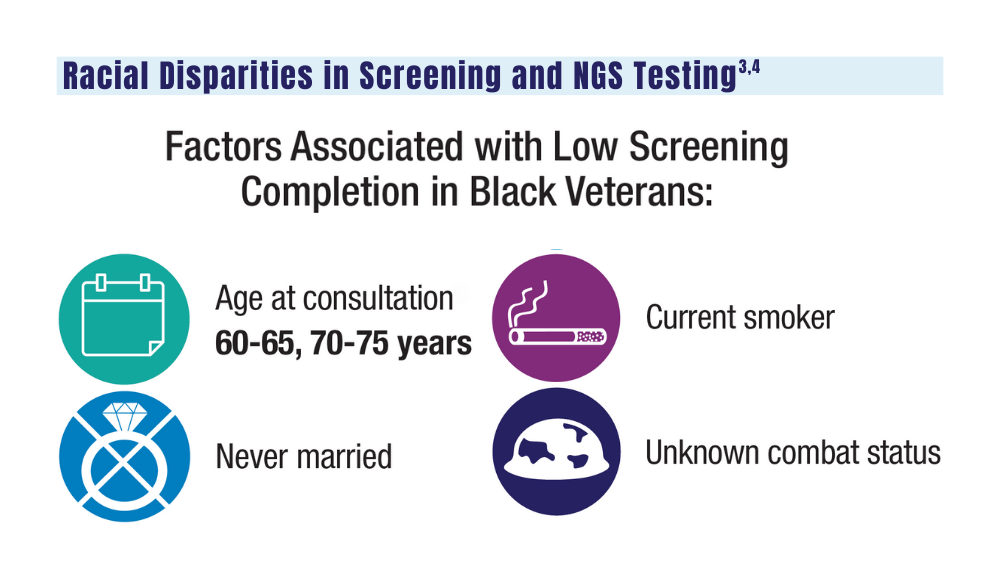
Age at consultation was evaluated by the following categories: <60, 60-65, 65-70, 70-75, >75
-
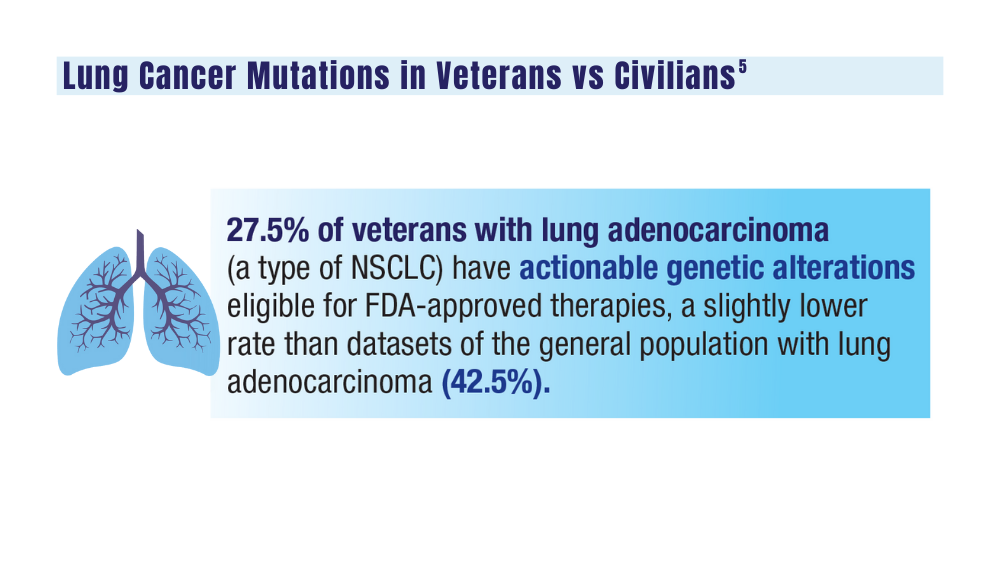
-
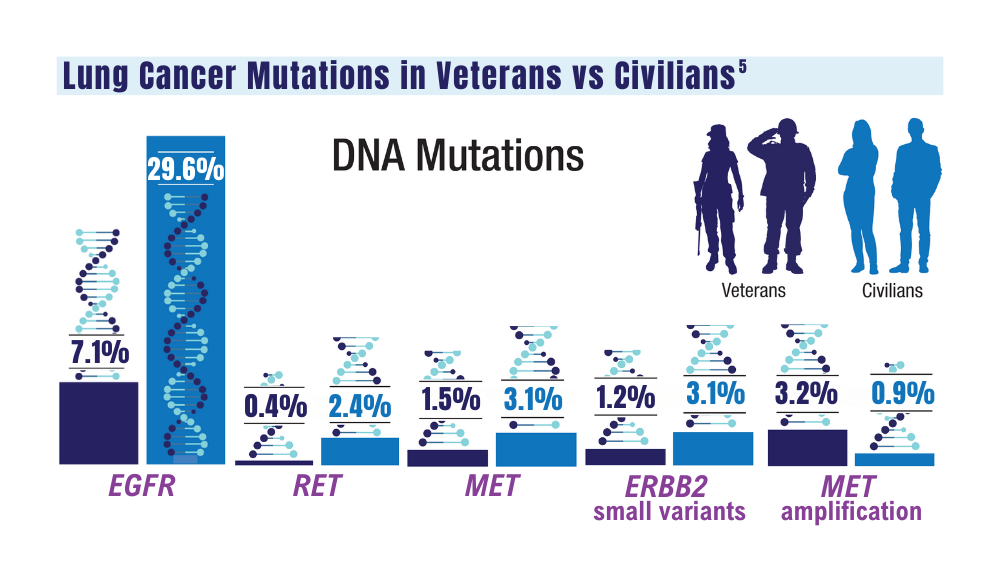
The frequency of EGFR mutations, RET rearrangement, MET exon 14 mutation, and ERBB2 small variants were less common and MET amplification was more common in veterans with lung adenocarcinoma compared to the general population.
Veterans and general population groups are not matched on all criteria; therefore, these differences in mutations should be interpreted with caution.
-
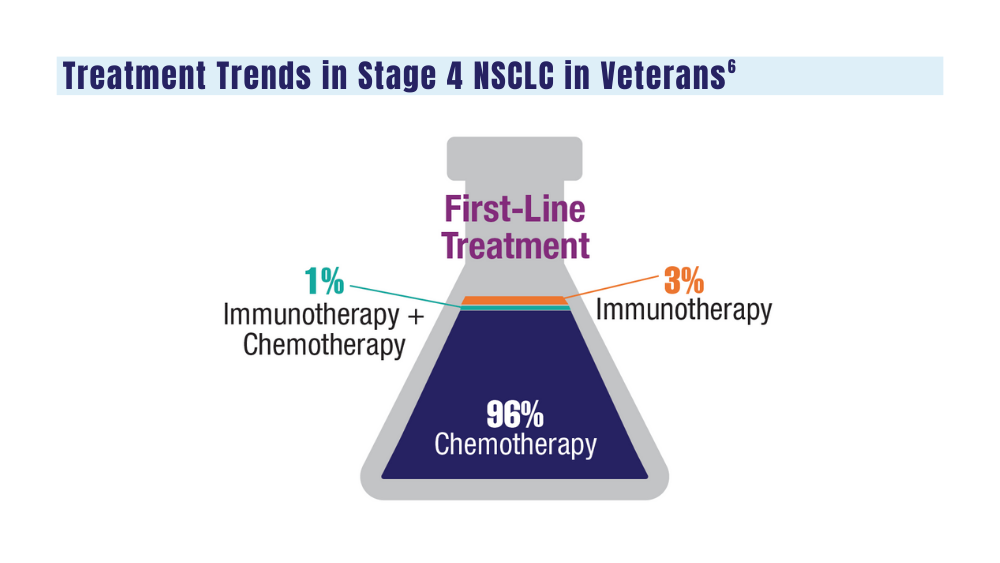
Recent clinical trials show that immunotherapy slightly improves overall survival in advanced NSCLC, particularly in the second-line setting. However, veterans still receive immunotherapy at lower rates than chemotherapy.
-
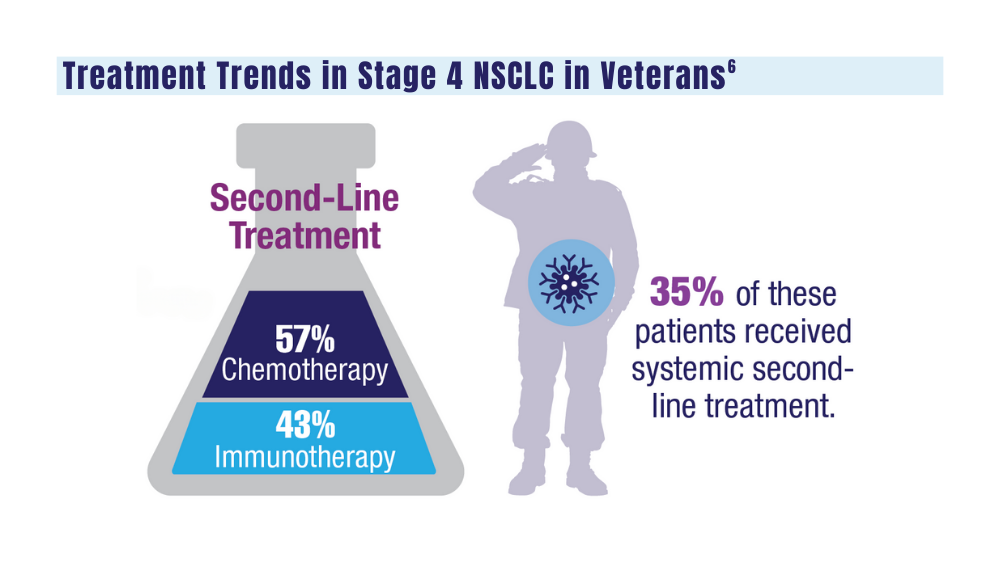
-
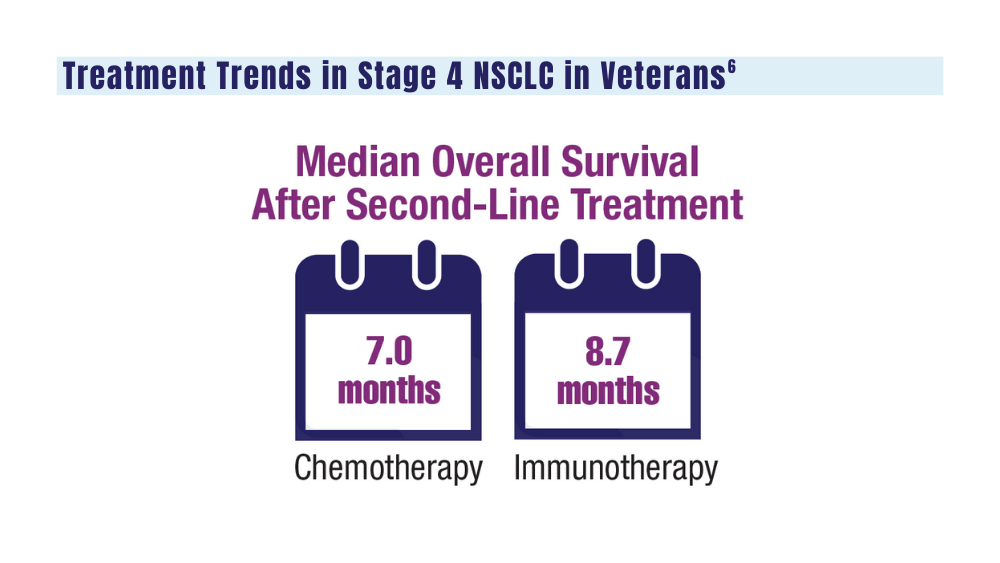
-
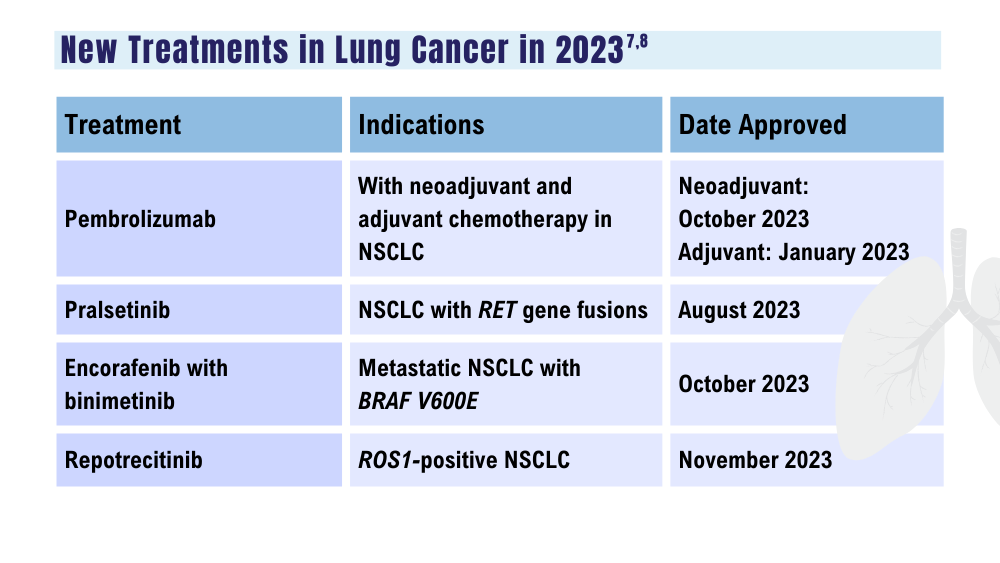
The lung cancer treatment landscape is rapidly changing, with progress being made in NSCLC and small cell lung cancer (SCLC), and many new treatments on the horizon that will change the standard of care.
In the SCLC space, CASPIAN was a recent trial of interest, leading to the approval of durvalumab.

